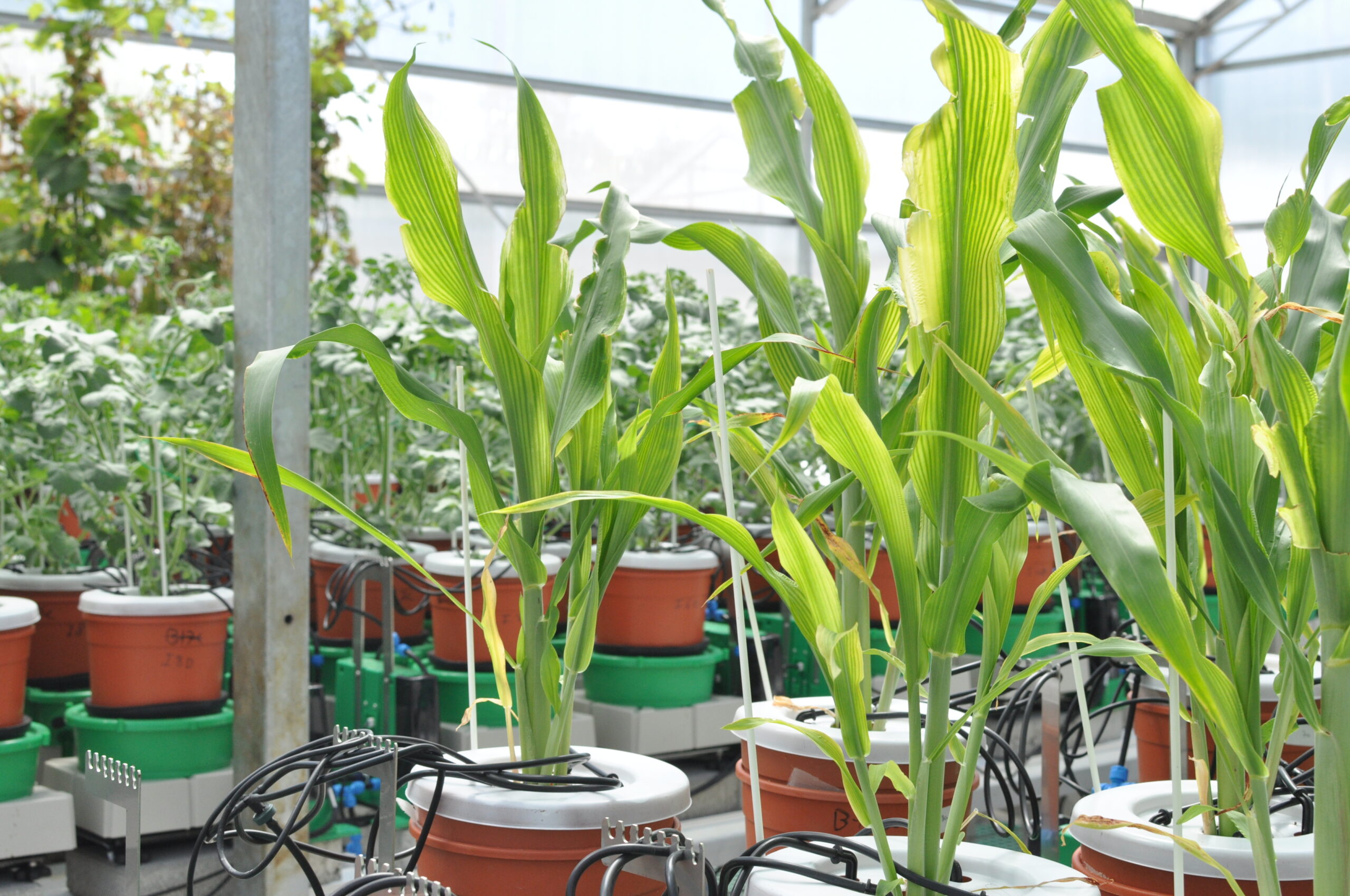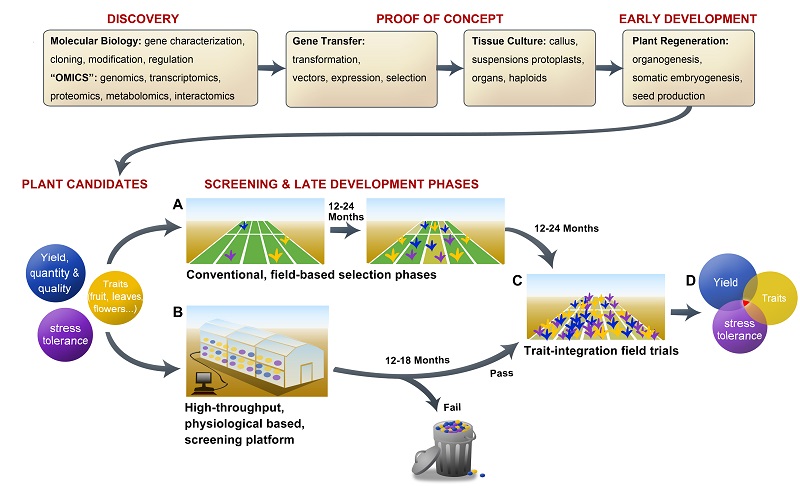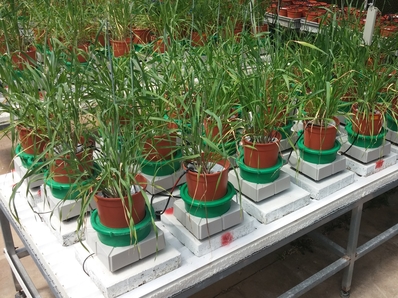Home » Applications » Genetics & Breeding
Genetics & breeding for stress tolerance
Recent progress and cost reductions in sequencing methods suggest that the avoidance of future breeding bottlenecks will require the ability to phenotype large populations in a reliable and effective way. Reliable assessment of quantitative physiological traits (QPTs) such as growth rate, water use efficiency or transpiration are important aspects in many research and development programs. Nevertheless, measuring these QPTs has always been a major challenge due to the complex nature of the phenotype, the number of genes involved, the high genotype by environment interaction (GxE), the cost of phenotyping large numbers of individuals, and the typical heterogeneity in production environments which requires that precise screening will take place in a controlled environment.

Quantitative, objective, and automated plant screening methods combined with decision-support algorithms such as PlantArray, enable rapid screening of the most promising crop lines at an early stage followed by final mandatory field experiments.
The PlantArray phenotyping system works with a large variety of plants, from Arabidopsis to Eucalyptuses seedling and significantly shortens the selection process of a wide variety of plants, such as:
- Field and vegetable crops
- Biodiesel and biofuel crops
- Trees (for both timber and fiber) as well as forestry (selecting the best performing forest trees at the seedling age)
Key benefits of using PlantArray solution:
- Shortens time to market – pre-field functional mapping of large plant populations for environmental resistance within only 3-4 weeks.
- Measures growth rates and performs yield predictions with a proven correlation to field results.
- Reduces the very high cost of trial and error (money, time, personnel) by highlighting the higher yield plants under unfavorable conditions for further successful field experiments.
"Thanks to the high-throughput plant phenotyping equipment and automatic natures from Plant-Ditech, many notoriously difficult-to-source traits can now be easily acquired, enabling genetic association analysis."
Pei Xu, PhD, Professor - Zhejiang Academy of Agricultural Sciences, China


